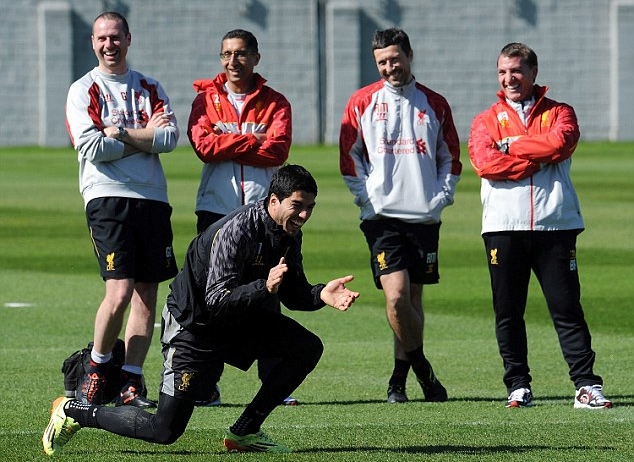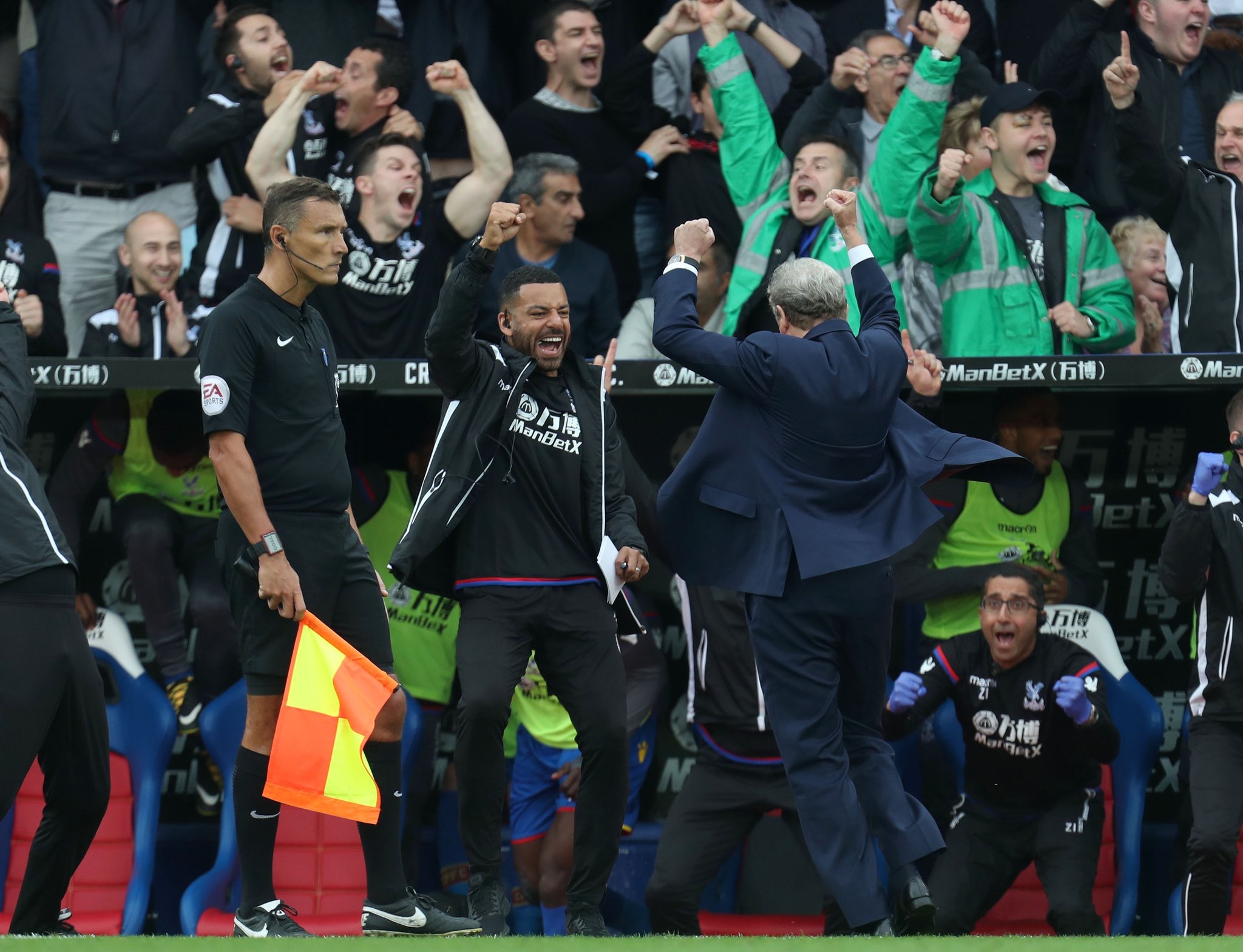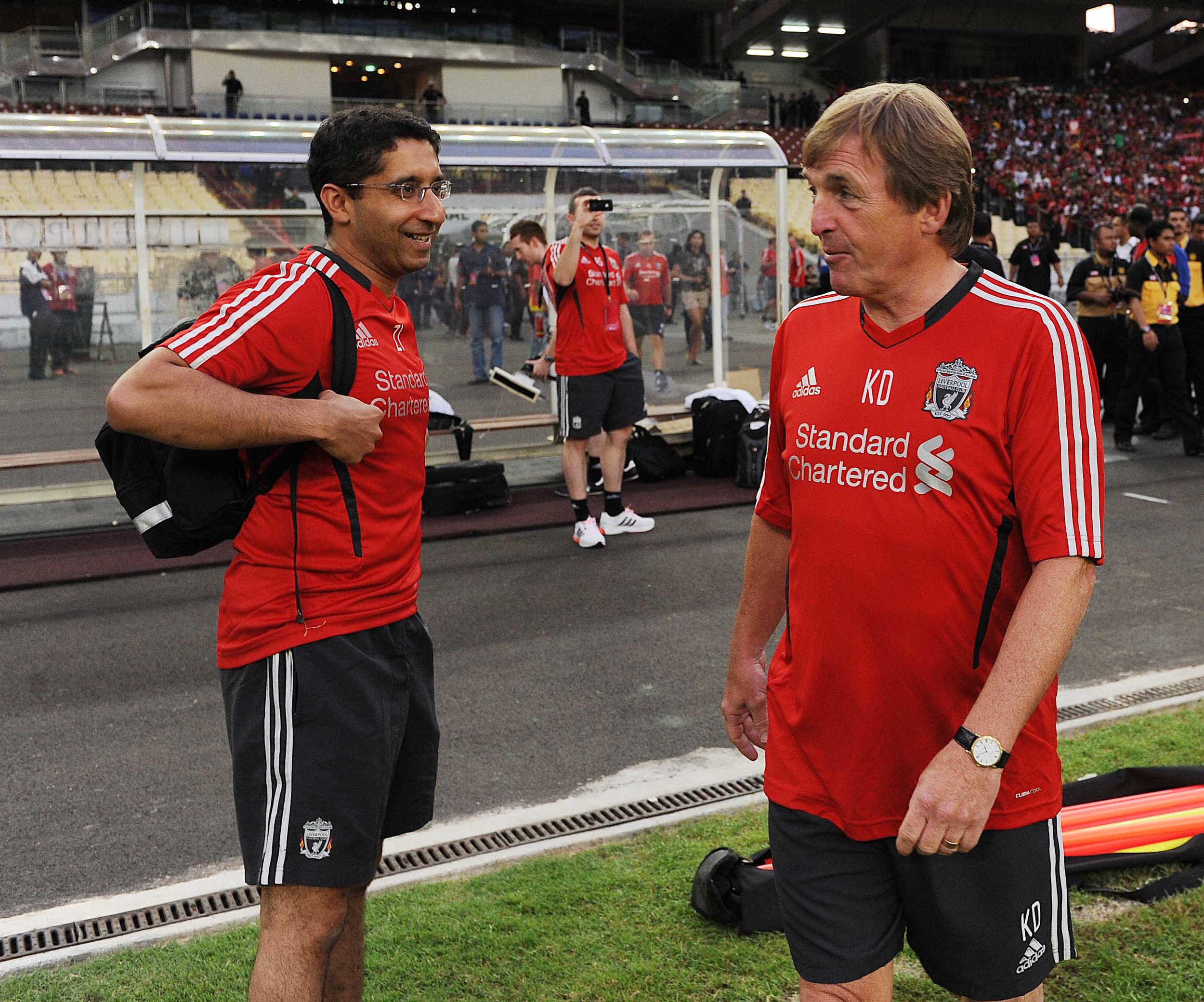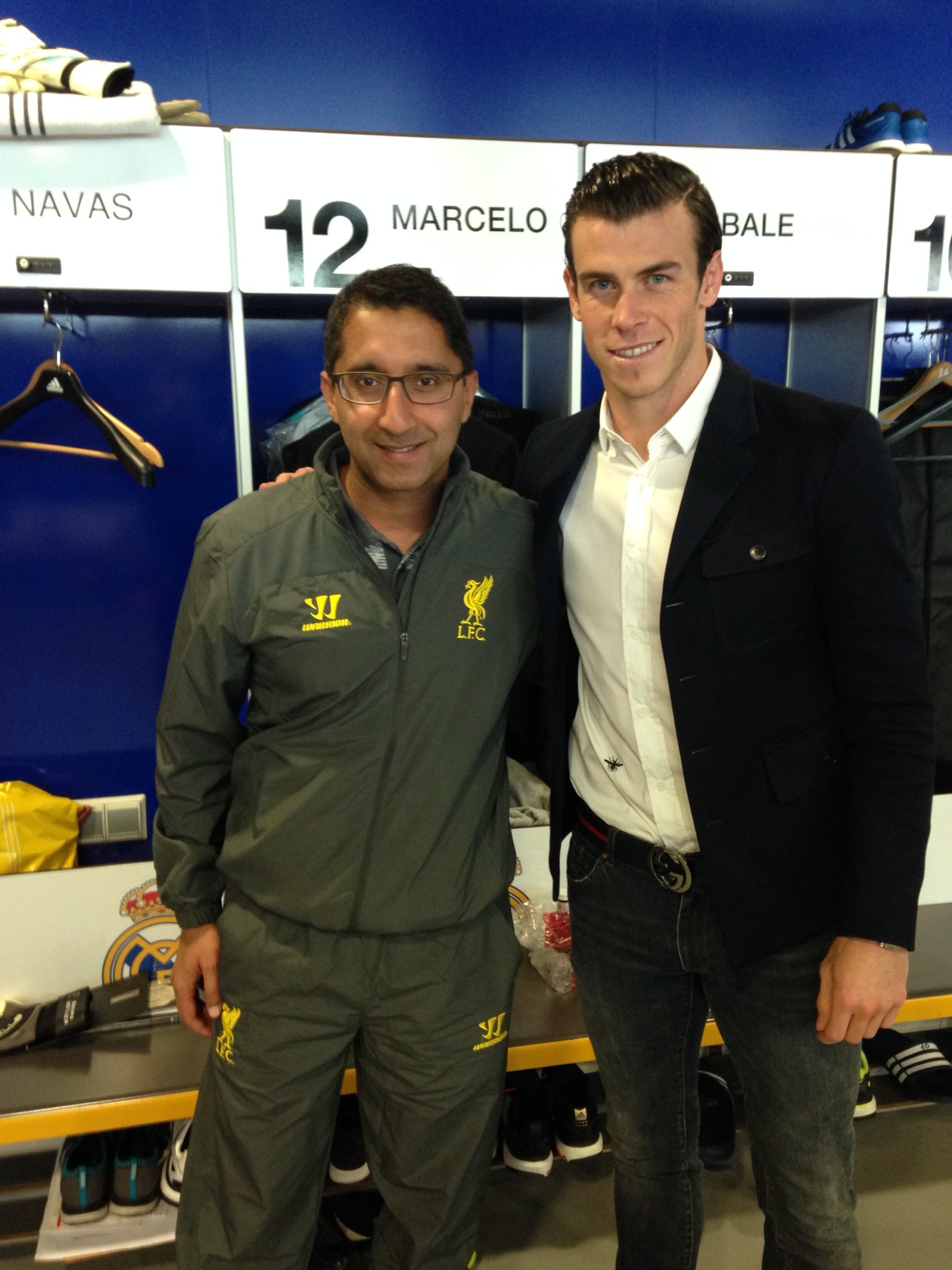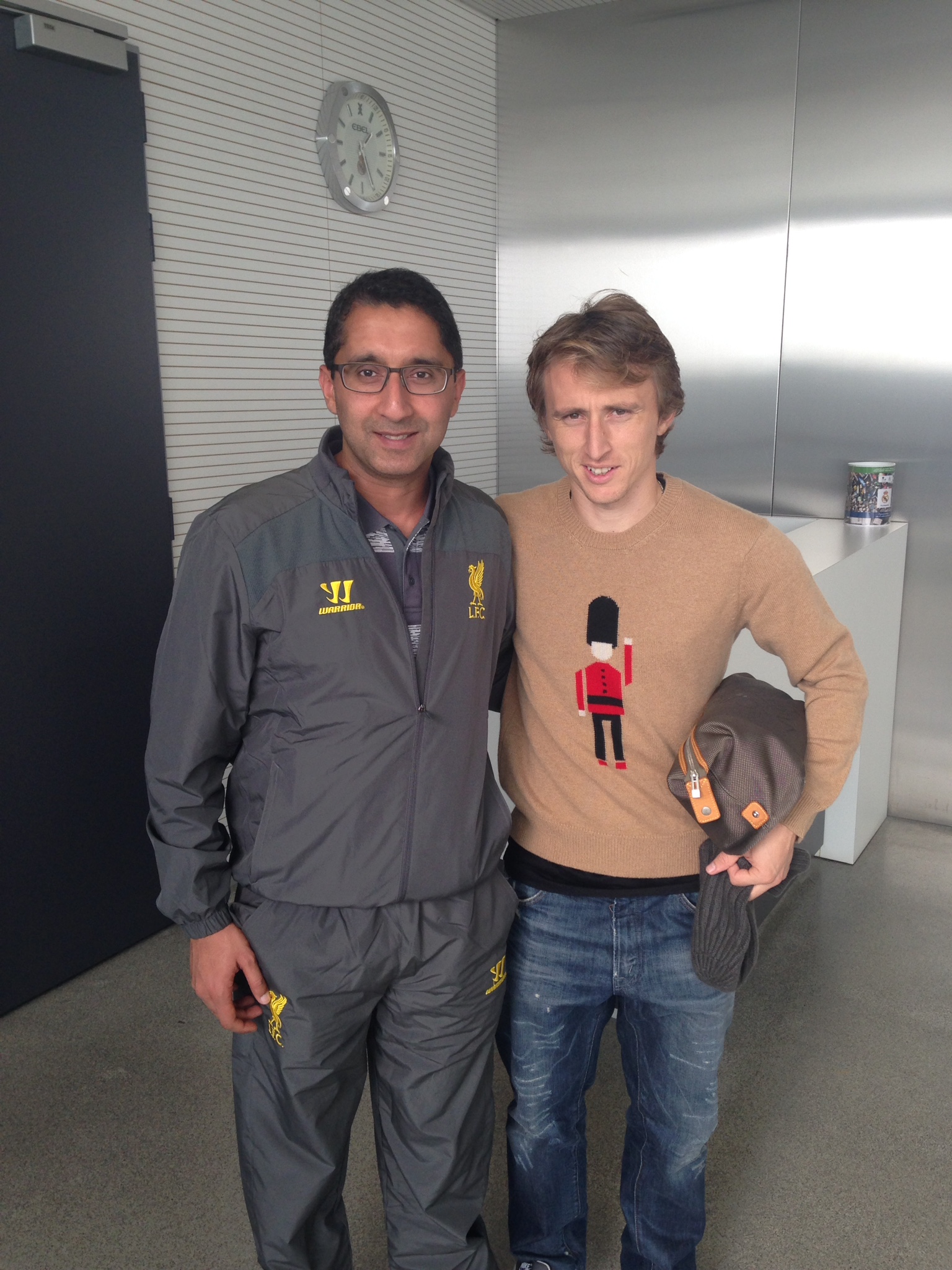As a young British Muslim growing up in London, football was a major part of my life. You see, as somebody awkwardly born just short of being a millennial I’d like to think I had the best of both footballing worlds. In my world Kenny Dalglish was merely a football manager, David Beckham was everybody’s first footballing idol and Manchester City consistently maintained a top sixteen finish in the league. Ah the good old days.
But like most brown boys in the UK lack of representation in the Premier League was a given. Micheal Chopra and Zesh Rehman although fantastic players in their own right didn’t quite provide the same inspiration as Steven Gerrard belting through the midfield under the lights at Anfield. But my inspiration wasn’t to be found directly on the football pitch. Every now and again while watching a game I’d notice someone on the substitutes bench who caught my eye, he’d often be scurrying along the touchline treating players and talking with the coaching staff. It turns out that the person was Dr Zafar Iqbal a British Muslim Pakistani who was the first team doctor at Liverpool Football Club.
I don’t think I noticed it at the time but that small realisation had a big impact on the way I looked at a future career. Somebody so familiar in culture to me was trailblazing at the pinnacle of the football world, a world that seemed so attractive yet so far away. As the season went on me and my little brother would even give a little cheer when he was caught in the broadcasters camera lenses.
I share my rather undramatic anecdote simply because it shows just how important representation can be. I had no real ambition to make it in the Premier League but to see somebody with a similar background make it to that level planted a seed of ambition which I still hold to this day.
8 years down the line Zaf has moved on from his days at Liverpool FC but has still maintained his position as a Premier League doctor working for Crystal Palace. As part of our inaugural quarterly ‘My Career’ I had the opportunity to ask Sports Doctor Zaf Iqbal a few questions about his career path and what it took to make it to where he is today.
What is your official job title and what does the role entail?
I’m a Consultant in Sports and Exercise Medicine and the Head of Sports Medicine at Crystal Palace FC. This means I’m responsible for the health and wellbeing of the professional players at Crystal Palace. Alongside the rest of the medical and sports science team, the aim is to get players in the best physical shape for training and games. This involves maintaining their fitness, strength and also managing their injuries when they occur and to try and return them to training as quickly as possible in a state where they can perform as before and minimise risk of re-injury.
Alongside this I’m the medical officer at Kent Cricket Club and also see a few cricketers from Pakistan who have access to the sports medicine facilities that we have in the UK. Since 2006 I have been a senior lecturer at QMUL (Queen Mary University of London) on the Sports medicine MSC and BSc course. For the last 12 years I’ve been the chairman for the FA medical society; organising four educational conferences [a year] for other doctors and physiotherapists working in sport. I’m also the co-chairman of the Premier League Doctors Group. I also have a particular interest in promoting awareness about healthy lifestyles and campaigning for AEDs (Automated External Defibrillators) to be made available in all schools and public places.
What is your educational background?
I qualified as a medical doctor from St Bartholomew’s and the Royal London School of Medicine in 1999. Along the way I’ve continued doing some further postgraduate qualifications as I’m trying to get the full alphabet after my name [laughs].
How did you end up specialising in sports medicine? What prompted the career direction?
I’ve loved sports from a young age and had a passion for medicine from the age of 10 after I saw my younger sister spend prolonged periods of her short life over 6 years, in hospital due to severe brain cancer. After qualifying as a Doctor I initially wanted to be an orthopaedic surgeon as I was always good at DIY and carpentry when I was younger, however, while playing 5 a-side football I managed to tear my anterior cruciate ligament and was told the wait for a scan was 18 months and the care I got was pretty basic and wasn’t really helping me to return to sports. I started gaining weight and then decided to learn more about sports medicine as I just wanted to help myself and others in the NHS.
After competing my MSC in Sports and Exercise Medicine in 2005 I started setting up some sports medicine clinics within the NHS. That same year I started work as team doctor at Leyton Orient FC. In 2007 I became the academy doctor at Tottenham Hotspur FC, and in 2008 the first team doctor at Tottenham Hotspur FC. In 2010 I was asked to be the first team doctor at Liverpool FC and in 2012 I became the head of their sports medicine department. In 2015 I returned to London as my wife and 3 children were still based in London’s and it was becoming too difficult going back and forth and giving the club the commitment it needed. On returning to London I was asked to head up the sports medicine department at Crystal Palace FC.
You are somebody who most would consider has reached the top level in his profession. What would you say are the key skills a person must have to hit that bar of excellence?
There is no substitute for hard work and sacrifice. My parents made huge sacrifices to enable me to go to university and equally my wife has done, she is also a medical doctor who has taken prolonged career breaks to allow me to continue working in sports medicine and allow some stability at home. The other important skill is the desire to continue to learn and improve as sports medicine is continually evolving and you can’t sit still.
The best and worst thing about your job? (including things, you would warn an aspiring sports doctor about)
The best bit is doing a job that you love. I still pinch myself daily that I’m doing medicine that I love and using those skills and knowledge to help professional athletes return to the sports they love doing. The pressures are high but it’s very satisfying when the team is doing well and your work is acknowledged by the manager or players. The worst bit is the lack of free time during the season. In the last 19 years, I’ve been on holiday with the family a total of 3 weeks. I’m not expecting sympathy as it’s the life I’ve chosen and so certain sacrifices have been made by me and my family.
How has the arena of sports medicine changed since you began your career?
Certainly the sports medicine field has been recognised as a speciality in its own right and the professional clubs at the highest levels are recognising the importance of investing in the sports medicine department as they need to protect their main assets, the football players. There is more research and treatment modalities available to try and help improve performance, recovery and return from injury. The difficulty is working out which are gimmicks and which actually have proven benefit.
Do you have a passion for one particular element of your job role?
Just interacting with the players is brilliant as most of them are just like kids being back at school and trying to outdo each other and have a laugh at the medical teams expense. Of course getting players fit and available for a game and the team performing well is very enjoyable.
As a practising Muslim you’re trailblazing in your field and undoubtedly will inspire many others, was there somebody who inspired you?
My sister who had brain cancer was my first real inspiration as she went through so much at a young age and never complained. Then it was both my parents as my dad worked as a bus driver and my mother in a shop and they both just wanted me to go to university. Whenever I feel I’m having a particular tough day I just remind myself how fortunate I am and the sacrifices made for me to be where I am.
Have you ever felt as though your personal faith has conflicted with your professional life? And if so how?
To be honest I don’t think it ever has. Wherever I’ve worked everyone has known I’m a Muslim and in fact have been very accommodating. During Ramadan the clubs would make sure that I have a separate Sehri meal brought to my room when travelling away. At Spurs, one particular away game at Newcastle, about 10 mins before kickoff while the manager was giving a team talk there was a huge platter of food brought to the changing room by a security guy. This was handed to me, interrupting the managers team talk and had been organised by Jonathan Woodgate without my knowledge as he knew I’d been fasting. On another occasion at Liverpool FC, after we had won the league cup final the players asked me not to go into the changing room as they were going to be spraying champagne and they even were kind enough to remove my clothes before they started which was very thoughtful. The club’s all provide halal options on the menu and at Liverpool there was even a designated multi faith prayer room. Also when working with Kenny Dalglish (former Liverpool Manager) he would make sure that when he did take us out for a meal there was halal food available so that I wasn’t excluded. So I don’t feel my faith has ever conflicted with my work.
Do you believe there is enough diversity and equal opportunity in your profession?
From my own personal experiences if you are willing to work hard enough and have a little bit of luck the opportunities are there. You just have to look throughout the Premier League and there are players and staff from a variety of faiths and ethnic backgrounds. I don’t think that I’ve ever been restricted in achieving what I’ve wanted to due to my faith or background.
Special thanks to Zaf for taking the time out to contribute to our series you can stay up to date with his work over on his Twitter account: @sportsdrzaf
This November we will be sharing the stories of Muslim professionals who work in unique industries around the world. From sporting professionals to angel investors stay in the loop with our content by checking out the page below and following us on all our social platforms



